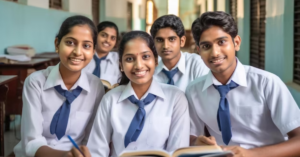About a month back there was a huge uproar on the delay of the NEET undergraduate program for medical and dental courses 2021-2022. Everybody knew the basic reasons for the delay as there was an ongoing case in the Supreme Court at that time regarding the constitutional validity of the 27% OBC quota for NEET counseling.
But there was a historic decision made by the Supreme Court on January 20, 2022, upheld the constitutional validity of 27% quota for Other Backward Classes (OBC) in National Eligibility cum Entrance Test’s (NEET) All India Quota seats for undergraduate medical and dental courses for 2021-2022. Supreme Court judges stated that “reservation is not at odds with merit” in open competitive examinations citing the reason for upholding the OBC quota.
Supreme Court further stated that “If open examinations present equality of opportunity to candidates to compete, reservations ensure that the opportunities are distributed in such a way that backward classes are equally able to benefit from such opportunities which typically evade them because of structural barriers. This is the only manner in which merit can be a democratising force that equalises inherited disadvantages and privileges. Otherwise, claims of individual merit are nothing but tools of obscuring inheritances that underlie achievements”.
This case was observed in 106 pages by the esteemed bench of Supreme Court judges Justice D.Y. Chandrachud and Justice A.S. Bopanna.
Justice Chandrachud observed in this case that “The privileges that accrue to forward classes are not limited to having access to quality schooling and access to tutorials and coaching centres to prepare for a competitive examination but also includes their social networks and cultural capital (communication skills, accent, books or academic accomplishments) that they inherit from their family.”
The non-financial social assets that promote social mobility beyond the economic means of a child from the forward classes are trained unconsciously by the familial environment to take up higher education or high posts commensurate with their family‘s standing. It acts as a disadvantage for individuals from socially backward classes who are first-generation learners and come from communities whose traditional occupations do not result in the transmission of necessary skills required to perform well in the open examination. Therefore, merit is not solely of one’s own making.
The court said the “idea of merit” based on scores in an exam requires “deeper scrutiny”.
“While examinations are a necessary and convenient method of distributing educational opportunities, marks may not always be the best gauge of individual merit. If a high-scoring candidate does not use their talents to perform good actions, it would be difficult to call them meritorious merely because they scored high marks,” Justice Chandrachud reasoned on the above court’s statement.
The fortitude and resilience required to uplift oneself from conditions of deprivation are equally reflective of individual calibre and merit, the court said.
Supreme Court (SC) said that the centre decided to provide reservations in All India Quota (AIQ) seats. Granting reservations in AIQ seats was a policy of the government.
AIQ scheme was introduced back in 1986 to provide domicile free admission to students from across the country. Till 2007, there was no reservation in the AIQ. The logic behind the AIQ scheme was that selection of candidates for admission based on the all-India open examination would further merit since it would permit the selection of the best minds in the country.
The increase in the number of medical seats over the years has favoured the AIQ scheme. In the last six years, MBBS seats in the country were increased by 56% from 54,348 in 2014 to 84,649 seats in 2020.
Justice Chandrachud said the power of the government to provide reservations under Article 15 (4) and (5) of the Constitution is not an “exception” to Article 15 (1), which enshrines the mandate that “the State shall not discriminate against any citizen on grounds only of religion, race, caste, sex, place of birth or any of them”. The court held that the power of the government to craft reservations for the OBC amplified the principle of “substantive equality” manifested through Article 15 (1).
The Parliament had backed the reason by enacting the Central Educational Institutions (Reservation in Admission) Act 2006 to enable 15% reservation for Scheduled Castes, 7.5% for the Scheduled Tribes, and 27% for the OBC category.
“Though the Act of 2006 would not apply to the seats earmarked for AIQ in State-run institutions since it would not fall within the definition of a Central educational institution under the Act, the Union, given Article 15(5), has the power to provide reservations for OBCs in the AIQ seats. It is not tenable for the States to provide reservation in the AIQ seats since these seats have been ‘surrendered to the Centre,” Justice Chandrachud noted on parliament reasoning.
The judgment was based on petitions filed by doctors in August 2021 against a July 29, 2021, notification issued by the Directorate General of Health Services of the Ministry of Health implementing 27% and 10% reservation for OBC and Economically Weaker Sections (EWS), respectively, while filling up 15% undergraduate and 50% postgraduate AIQ seats under NEET.
Keep following PracBee for more information and updates.



